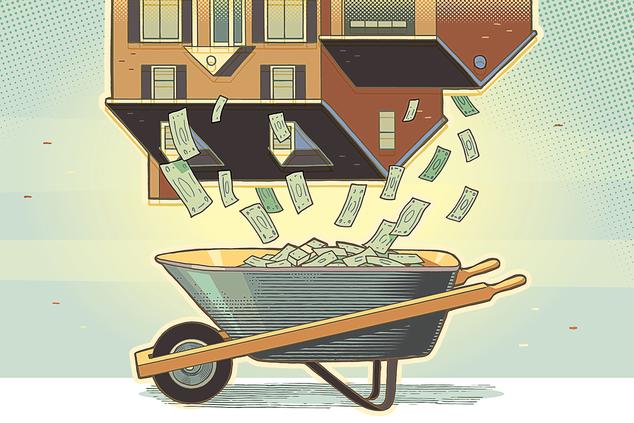Need Cash for Supplemental Income? Consider a Reverse Mortgage
If you’re 62 or older – and want money to pay off your mortgage, supplement your income, or pay for healthcare expenses – you may consider a reverse mortgage. It allows you to convert part of the equity in your home into cash without having to sell your home or pay additional monthly bills.
With a regular mortgage, you pay the lender every month to buy your home. In a reverse mortgage, you get a loan in which the lender pays you. Reverse mortgages use a portion of the equity in your home and convert it into payments to you (much like an advance payment on your home equity). The money you get is usually tax-free and generally won’t affect your Social Security or Medicare benefits. You don’t pay back the money for as long as you live in your home; however, when you die, sell your home, or move out, the loan becomes due.
Here are some things to consider about reverse mortgages:
There are fees and other costs. Reverse mortgage lenders generally charge an origination fee and closing costs, as well as servicing fees over the life of the mortgage. Some also charge mortgage insurance premiums for federally insured home equity conversion mortgages (HECM).
You owe more over time. As you get money through your reverse mortgage, interest adds to the balance you owe each month. That means the amount you owe grows as the interest on your loan adds up over time.
Interest rates may change over time. Most reverse mortgages have variable rates tied to a financial index and change with the market. Variable-rate loans tend to give you more options on how you get your money through the reverse mortgage. Some reverse mortgages—mostly HECMs—offer fixed rates, but they tend to require you to take your loan as a lump sum at closing. As a result, often, the total amount you can borrow is less than you could get with a variable rate loan.
Interest isn’t tax deductible each year. Interest on reverse mortgages isn’t deductible on income tax returns – until the loan is paid off, either partially or in full.
You have to pay other costs related to your home. In a reverse mortgage, you keep the title to your home. That means you’re responsible for property taxes, insurance, utilities, fuel, maintenance, and other expenses. And, if you don’t pay your property taxes, keep homeowner’s insurance, or maintain your home, the lender might require you to repay your loan. A financial assessment is required when you apply for the mortgage. As a result, your lender may require a “set-aside” amount to pay your taxes and insurance during the loan. The “set-aside” reduces the amount of funds you can get in payments. You’re still responsible for maintaining your home.
What can you leave to your heirs? Reverse mortgages can use up the equity in your home, which means fewer assets for you and your heirs. However, most reverse mortgages have something called a “non-recourse” clause. This clause means that you, or your estate, can’t owe more than the value of your home when the loan comes due, and the house is sold. With an HECM, generally, if you or your heirs want to pay off the loan and keep the home rather than sell it, you wouldn’t have to pay more than the home’s appraised value.
If you’re considering a reverse mortgage, take your time and do your research – there are many details to consider. Financial changes like a reverse mortgage can be complicated and can impact your retirement plan, so call us today at (513) 769-2700, and we can help compare the options, terms, and various lender fees.
Adapted from Federal Trade Commission1



